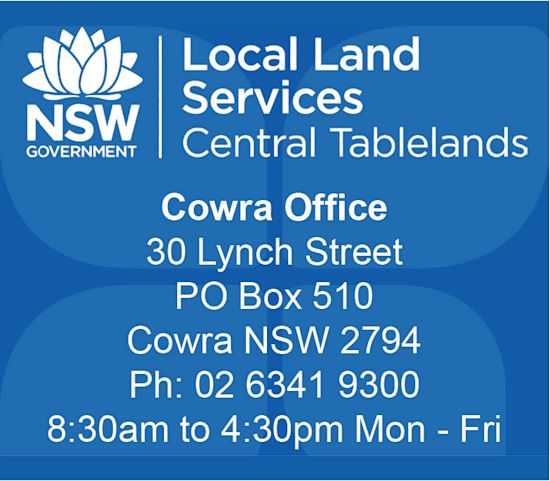Central Tablelands LLS Advises Of Priority Weeds

With the Central Tablelands receiving strong summer rainfall there are many weeds that are taking advantage of the conditions, making it the perfect time to regularly inspect your properties for new weeds, especially in areas that have been flood impacted or sites where animal feed was put out. Three weeds to keep an eye out for are: sticky nightshade, silverleaf nightshade and Johnson grass.
Sticky nightshade (Solanum sisymbriifolium)
A regional priority weed that is in full flower now and is growing rapidly in the current warm and wet conditions. It competes with crops, pastures and native vegetation, has sharp prickles which can injure people, pets, livestock and native animals and is costly to control.
Landholders across the region but in particular along the Belubula River should keep an eye out for this priority weed and are encouraged to control any plants that are found.
Sticky nightshade has moved along the Belubula River with the flood waters and in some cases is spreading out onto the river flats.
Silverleaf nightshade (Solanum elaeagnifolium)
A weed that is costly to control and competes with summer and winter crops as well as pastures. It is also toxic to stock. Silverleaf nightshade is a regional priority weed as well as being listed as a WoNS (Weeds of National Significance). In the Central Tablelands, silverleaf nightshade in mainly found in the Cowra Shire Council area – but all landholders across the region are advised to keep watch for this weed and undertake control to prevent this weed from spreading.
Johnson grass (Sorghum halepense)
While not listed as a priority weed in the Central Tablelands it is a grass that is worth controlling if spotted in the region. It is a summer growing perennial sorghum which grows up to two metres tall.
It invades cropping land, is a host of crop pests and diseases, is a contaminant of seed crops, is a safety hazard along roadsides and can be toxic to livestock.
For information on identification and control of priority weeds on your property visit NSW WeedWise at https://weeds.dpi.nsw.gov.au/#atid=2e749e646f30f611, or contact your local council weeds officer or agronomist.
Stay Connected
Cowra News to your inbox
Sign up now for the latest news from the Cowra Area direct to your inbox.










